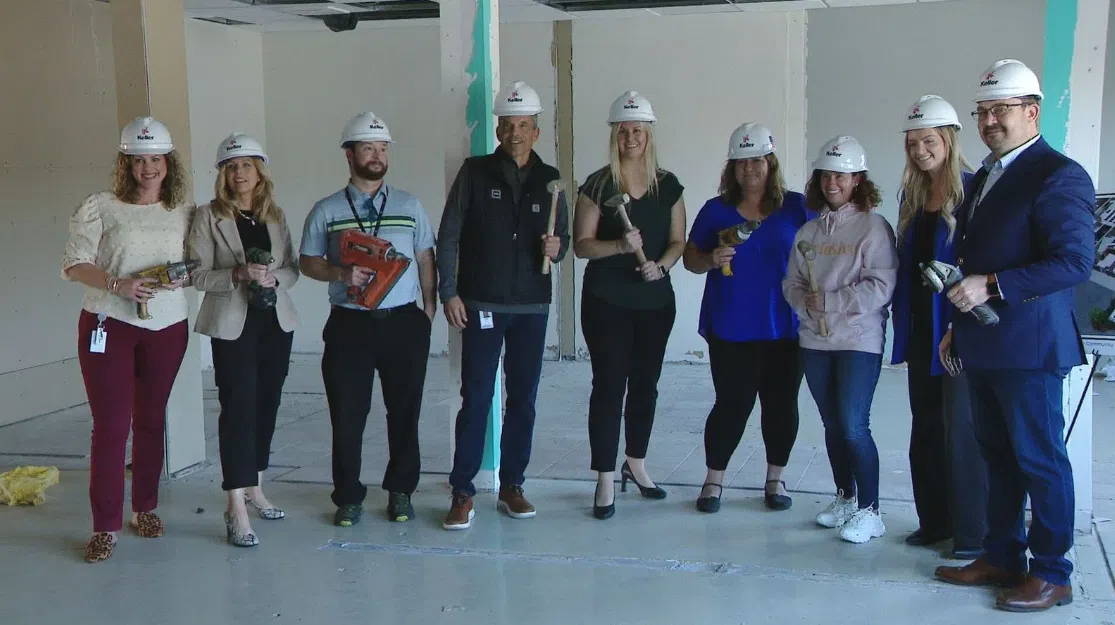
VPI breaks ground on its Community Programs Collective facility in Appleton, Oct. 29, 2024. PC: Fox 11 Online
APPLETON, WI (WTAQ-WLUK) — A nonprofit organization in Appleton celebrated the groundbreaking Tuesday of a facility designed to provide inclusive services to individuals with disabilities.
VPI says its Community Programs Collective will be a hub supporting children and adults with disabilities throughout Northeast Wisconsin. The facility, located at 2350 N. Casaloma Drive, is expected to open in spring 2025.
“It’s kind of been a long time coming. Two or three years ago, we looked at what we were doing, what the needs of the community were. We kind of stepped back and said, ‘We really need this community programs hub,'” said VPI President & CEO Tim Riebau.
“It’s Birth to Three. We have a lot of education programs, young kids coming out of Special Ed through the high schools. Job training programs. A program that we have — Skills to Pay the Bills — really teaching them how to work, how to find work. And then we’ll have a large group of job coaches here that will be out in the community helping individuals find and then keep jobs. There’s a huge need in the community for that,” Riebau said.
The Community Programs Collective will combine VPI’s Early Intervention, Adult Day Services and Education and Employment programs. It will also introduce a dedicated Family Support Center for families to engage with their Birth to Three support team.
According to officials, the Family Support Center will be especially valuable for families without housing or whose homes are not available for visits. It will also function as a versatile area for private counseling sessions, parental workshops and other trainings.
Additionally, adults who participate in VPI’s Day Services will enjoy a number of new features within the facility, including sensory rooms, an accessible training kitchen and an outdoor patio — all of which are intended to foster independence, skill-building and social engagement.
Thanks to these enhanced spaces, VPI Day Services will be able to double one-to-one service capacity and serve more than 100 additional individuals each year.
“We always have a waiting list. Once we move in, we’ll be able to clear that waiting list, but that waiting list will grow again soon,” said Riebau.
“It really gives us an opportunity to serve more people in the community. Any given year, we’ll serve up to 2,500 people,” he added. “This just gives us a collective, a place to do that.”





Comments